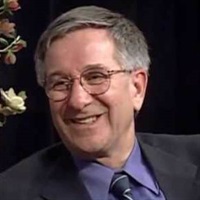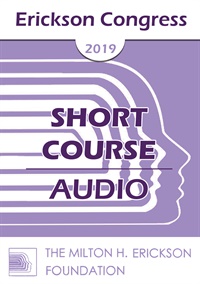IC19 Short Course 19 - Dealing with the Effects of Trauma: Depression, Hopelessness and Alienation - Robert Wubbolding, EdD
- Average Rating:
- Not yet rated
- Topic Areas:
- Short Courses | Depression | Trauma | Seeding | Therapeutic Relationship
- Categories:
- Erickson Congress | Erickson Congress 2019
- Faculty:
- Robert Wubbolding, EdD
- Duration:
- 1 Hour 24 Minutes
- Format:
- Audio Only
- Original Program Date:
- Dec 12, 2019
- License:
- Never Expires.
Description
Description:
The American novelist William Faulkner stated, "The Past is never dead. In fact, it is not even past." This presentation emphasizes the unconventional use of reality therapy that connects the past with the presents by helping clients realize that their current behaviors are normal responses to abnormal situations that they have experienced. It also operationalizes the Ericksonian principle: "The solution often appears unrelated to the problem." The core of this session is a simulated demonstration illustrating a cluster of possible interventions focusing on the WDEP system of reality therapy. W indicates wants and perceptions. D searches for behaviors: actions, cognitions and emotions. E emphasizes implicit and explicit self-evaluation whereby the therapist assists clients to conduct a fearless inventory of helpful and hurtful behaviors. The P represents treatment planning based on at least 5 motivators identified in the underlying theory of reality therapy. The resulting client change culminates from having "seeded the plan" that takes place, especially through a detailed discussion of clients' self-evaluations. Participants will gain practical, usable skills immediately implementable in their therapeutic relationships - skills that can be integrated into other theories and methodologies.
Educational Objectives:
- Demonstrate one intervention that helps clients see the connection between past trauma and current behavior in a more positive light.
- List 2 interventions that are pre-requisites for effective treatment planning.
- Describe how reality therapy interventions can be efficacious for “seeding the plan” that leads to positive client change.
*Sessions may be edited for content and to preserve confidentiality*
Credits
Faculty

Robert Wubbolding, EdD Related Seminars and Products
Robert Wubbolding is an internationally known teacher, author and practitioner of Reality Therapy, having taught Choice Theory and Reality Therapy in the United States, Europe, Middle East and Asia including thirteen countries. Dr. Wubbolding has become synonymous with a branch of psychotherapy called Reality Therapy. His books, presentations and courses served to advance this therapeutic application and brought him personal and professional distinction of international scope. His contributions to the theory and practice include the ideas of "Positive Symptoms," "The Cycle of Counseling," and "5 Levels of Commitment."


